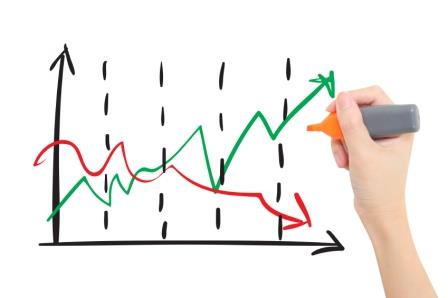Should you sell in May and go away?
David Prosser asks whether the old investment adage holds true, or whether there is more to the story.
 Some investors may be just about to sell all their stock market investments. Not because they fear an impending economic crisis or some other shock, but because of an old stock market saying: “Sell in May and go away, don’t come back until St Leger’s Day”. The saying is based on the idea that the stock market tends to perform badly during the summer compared to the winter; in which case, you should avoid it until September (when the St Leger’s Day horse race takes place).
Some investors may be just about to sell all their stock market investments. Not because they fear an impending economic crisis or some other shock, but because of an old stock market saying: “Sell in May and go away, don’t come back until St Leger’s Day”. The saying is based on the idea that the stock market tends to perform badly during the summer compared to the winter; in which case, you should avoid it until September (when the St Leger’s Day horse race takes place).
Before you dismiss the idea as a barmy old wives’ tale, consider the data. According to the Stock Market Almanac, since 1986, the UK stock market has on average made the equivalent of 8.58 per cent a year during the winter months, but only 0.35 per cent during the summer. Even worse, the record shows investors have lost money over the summer months in 15 out of 29 years.
Looking further back, this phenomenon has been in evidence for much of the past 300 years. And the UK is not the only market to have experienced this effect – in one international study, there was evidence of the same trends in 36 out of 37 countries examined.
Academics have yet to come up with a convincing explanation for what is going on. One theory is that with fewer trades placed over the summer months, when investors are more likely to be on holiday, market volatility tends to be higher and the potential for losses rises. But while no-one has proved the case, the numbers do beg an obvious question: should stock market investors sell up on 1 May and then buy back in during September?
Stay invested
The short answer is almost certainly no. For one thing, the headline numbers don’t include transaction costs – it will cost you money to sell your shares or funds today, and there’ll be more to pay when you buy back into the market. These costs will erode the advantage you get from investing at the most profitable time of year.
Anyway, while the data may show investors do less well over the summer, they still make a positive long-term return. So being out of the market for a period each year will reduce returns.
The effect of this can sometimes be dramatic. Figures published recently by Fidelity Investment reveal that someone who had invested £1,000 in the UK stock market 30 years ago would have made an average annual return of 9.22 per cent since then, amassing a total of £14,117. But if they’d missed just the best 10 days of stock market performance over that 30-year period, their annual return would have slipped to 6.93 per cent, for a total of only £7,484. There’s every chance some of those days will occur during the summer months.
The other factor to consider is that analyses of long-term stock market returns typically exclude the impact of dividend income. Compare total return figures and you’ll get a very different picture of comparative performance.
Play the long-term game
The best way to ride out the summer blues – or any other period of less attractive returns – is to take the long-term view. Stock market investment does tend to be more volatile over short-term periods, but it also has a record of delivering the best long-term returns. Trying to second-guess market movements on a month-by-month basis is speculation rather than investment.
Much better to build a portfolio of diversified assets and then to drip-feed money into your holdings on a regular basis. Investment company regular savings schemes, for example, enable you to pay in as little as £25 a month. These schemes also give you the benefit of a phenomenon known as pound-cost averaging – in months when the markets are lower, your fixed investment buys more, increasing your return when markets recover. The effect is to smooth out volatility.
“Sell in May”, in other words, is a harmless bit of fun, but not an idea to take too seriously. And if you’re one for old adages, there are plenty of stock market aphorisms that offer very different counsel. Try Warren Buffett’s advice: “Someone is sitting in the shade today because someone planted a tree a long time ago”.

